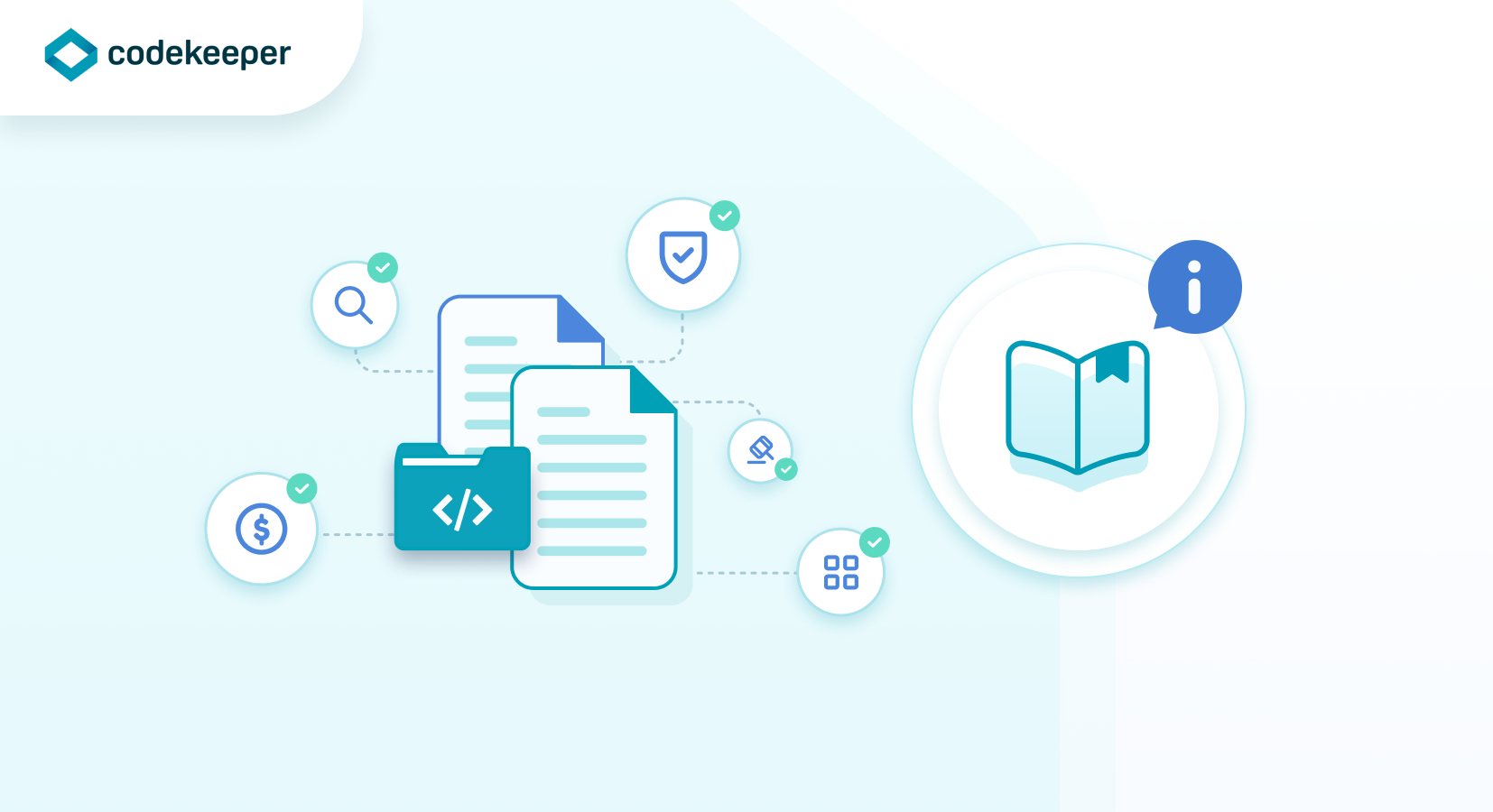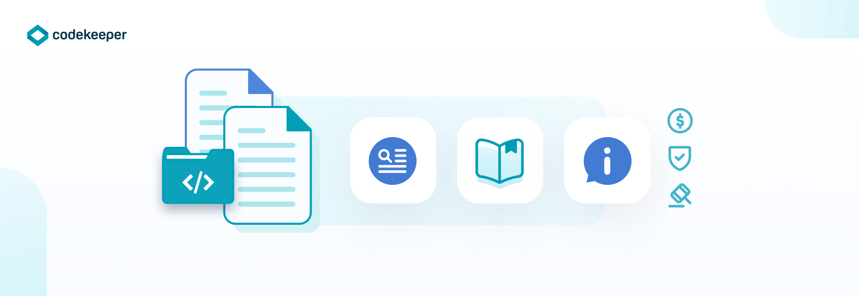A Comprehensive Guide for Understanding Software Escrow Agreements
The most comprehensive guide for understanding the aspects of a software escrow agreement.

By Jo Rust
In today's technology-driven world, businesses depend on software applications for their daily operations, and the reliability of these applications is critical. To mitigate risks associated with software unavailability or the inability of the software provider to support the application, companies can turn to software escrow agreements. This article will delve into the key components of a software escrow agreement, highlighting the aspects that ensure a successful and secure arrangement.
What is a Software Escrow Agreement?
A software escrow agreement is a legally binding contract involving three parties: the software developer (licensor), the end user (licensee), and a neutral third-party escrow agent (Codekeeper). This agreement outlines the conditions under which the escrow agent releases the source code and other vital materials to the licensee, usually when the licensor is unable or unwilling to fulfill their obligations, such as providing maintenance, support, or updates.
Key Components of a Software Escrow Agreement
- Definition of Release Conditions
Release conditions are a crucial element of a software escrow agreement, as they outline the specific circumstances under which the escrow agent can release the source code and other materials to the licensee. Common release conditions include:
- The licensor's bankruptcy or insolvency
- The licensor's cessation of business operations
- The licensor's failure to provide adequate support, maintenance, or updates
It is essential to clearly define these conditions in the agreement to avoid ambiguity and ensure a smooth release process when necessary.
Deposit Materials
The agreement should explicitly specify the materials to be deposited into the escrow account. These materials include:
- The source code
- Documentation
- Build instructions
- Test data and scripts
- Application programming interfaces (APIs)
- Any other components required for the licensee to maintain and support the software
It is crucial that the licensor regularly updates these materials to guarantee their relevance and usefulness in case of a release.
Verification and Testing
To ensure the accuracy, completeness, and functionality of the deposited materials, Codekeeper offers different verification service options to suit your specific needs. You can have a look at our different verification options here. The verification process typically involves:
- Reviewing the materials for completeness
- Confirming the materials' compatibility with the licensee's systems
- Assessing the materials' functionality according to the specifications
Verification and testing should be conducted periodically, as well as upon the licensee's request or when significant changes are made to the software.
Escrow Agent Selection
Choosing a reputable and experienced escrow agent is critical to the success of the software escrow agreement. The agent's primary responsibilities include:
- Safeguarding and storing the deposited materials
- Verifying and testing the materials, if required
- Releasing the materials to the licensee as per the agreement's conditions
- Ensuring compliance with the agreement's terms by all parties
It is essential to select an escrow agent with a strong track record in managing software escrow accounts and a comprehensive understanding of the legal and technical aspects involved. Codekeeper has been providing expert software escrow services to thousands of well-known brands and companies around the world for the last decade. Our track record speaks for itself.

Release Procedures
The software escrow agreement should clearly outline the release procedure, detailing the steps the licensee and escrow agent must follow to initiate and execute a release. This may include:
- The licensee providing a written release request specifying the relevant release condition
- A specified notice period for the licensor to address the release condition or dispute the request
- The escrow agent's responsibility to verify the release condition
- The method and timeline for the escrow agent to release the materials
Defining a clear release procedure ensures that all parties understand their responsibilities and helps prevent disputes.
Post-Release Obligations
The agreement should specify the licensee's obligations after the release of the source code and other materials. These post-release obligations may include:
The scope of permitted use: The licensee should only use the released materials to maintain, support, or update the software for their specific needs. The agreement should clearly define the allowed extent of usage to avoid potential misuse.Limitations on sublicensing and distribution: The agreement should outline any restrictions on the licensee's ability to sublicense or distribute the released materials to ensure the licensor's intellectual property rights are protected.
Confidentiality requirements: The licensee should be required to maintain the confidentiality of the released materials, as they often contain sensitive information and trade secrets. The agreement should specify the measures the licensee must take to safeguard the materials and prevent unauthorized access or disclosure.
Obligation to inform the licensor: The licensee should be required to inform the licensor about any discovered defects or vulnerabilities in the software, enabling the licensor to address these issues in future updates or releases.
Termination of the agreement: The software escrow agreement should outline the conditions under which the agreement can be terminated, such as the fulfillment of the licensor's obligations, the licensee ceasing to use the software, or the mutual consent of both parties.
Tips for a Successful Software Escrow Agreement
- Choose the Right Escrow Agent: Selecting a reputable and experienced escrow agent like Codekeeper is essential for a successful software escrow agreement. Ensure that the agent has a proven track record in handling software escrow accounts and a deep understanding of the legal and technical aspects involved.
- Clear Communication: Open and honest communication between the licensor and licensee is critical for establishing a successful software escrow agreement. Both parties should discuss their concerns and expectations to ensure that the agreement addresses all relevant issues.
- Regular Updates: The licensor must provide regular updates to the deposited materials to maintain their relevance and usefulness in case of a release. Establish a schedule for periodic updates and make sure the agreement includes provisions for updating the materials when significant changes are made to the software.
- Customization: Every software escrow agreement should be tailored to the specific needs and requirements of the licensor and licensee. Customizing the agreement helps ensure that it addresses the unique concerns of both parties and provides the necessary protection and flexibility. Our agreements come standard with customization to suit your individual needs.
- Periodic Review: The licensor and licensee should periodically review the software escrow agreement to ensure it remains relevant and effective. This review process can help identify any changes in the parties' needs or circumstances and provide an opportunity to update the agreement accordingly.
A well-crafted software escrow agreement can provide significant benefits to both the licensor and licensee by ensuring the availability and functionality of critical software applications. By carefully considering the key components of a software escrow agreement, including release conditions, deposit materials, verification and testing, escrow agent selection, release procedures, and post-release obligations, businesses can establish a successful and secure arrangement that protects their interests and fosters trust and transparency between all parties involved.
Book a demo call with one of our experts today by clicking on the button below. We'll help you draft a customized software escrow agreement to suit your individual needs.
Codekeeper : State-of-the-art software escrow solutions




